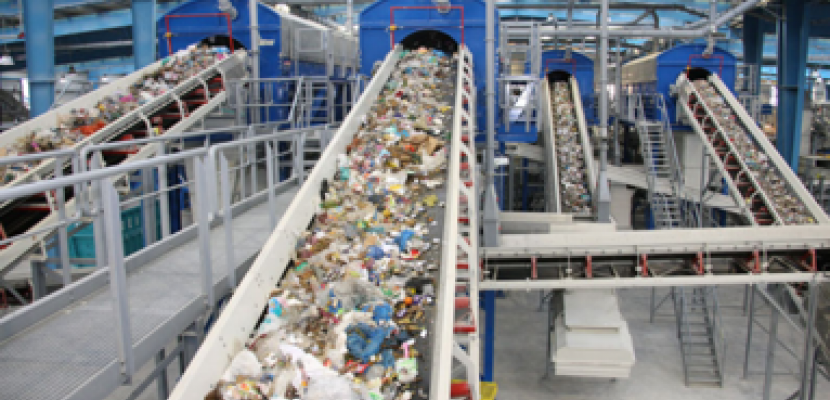Image

Integrated waste management plant in Koshie (Cyprus)
Published on 15 December 2019

Cyprus
Kýpros
This is the good practice's implementation level. It can be national, regional or local.
About this good practice
The Integrated Waste Management Plant (IWMP) in Koshi started operation in 2010 and was designed to receive all the municipal waste from the Districts of Larnaka and Ammochostos. It aimed to harmonize the waste management practices of the Republic of Cyprus with the EU relevant regulations (Cyprus became full member of EU on 2004). The Plant should accept 3 type of waste:
- Mixed municipal solid waste (MSW)
- Domestic bulky waste
- Green waste
In the IWMP the mixed municipal waste goes through mechanical sorting aimed to remove the greater flow of recyclable materials, while the organic fragment undergoes biological treatment. For the processing of the organic waste, 10 bioreactors are in operation, with a capacity of 270-300tn each, for the production of compost. The designed maximum capacity of the Plant is 160,000 tn/y S.M.W (Output products: 17% recovery recyclables, 17% RDF, 35% Compost, 1% water losses/flight materials, 30% Residuals).
The main goal was to divert at least 45% of the input waste into valuable products such as Plastic packaging material
- Mixed paper and cardboard,
- Glass,
- Metals and Compost Like Output
- The Plant is an integrated solid waste management facility since it also includes a municipal solid waste landfill for the residues of the treatment (A sanitary landfill site with an annual capacity of 88.000 t/y and a minimum time-life of 20 years (total volume 2.8 million m3) as well as a waste water treatment unit for the leachates.
- Mixed municipal solid waste (MSW)
- Domestic bulky waste
- Green waste
In the IWMP the mixed municipal waste goes through mechanical sorting aimed to remove the greater flow of recyclable materials, while the organic fragment undergoes biological treatment. For the processing of the organic waste, 10 bioreactors are in operation, with a capacity of 270-300tn each, for the production of compost. The designed maximum capacity of the Plant is 160,000 tn/y S.M.W (Output products: 17% recovery recyclables, 17% RDF, 35% Compost, 1% water losses/flight materials, 30% Residuals).
The main goal was to divert at least 45% of the input waste into valuable products such as Plastic packaging material
- Mixed paper and cardboard,
- Glass,
- Metals and Compost Like Output
- The Plant is an integrated solid waste management facility since it also includes a municipal solid waste landfill for the residues of the treatment (A sanitary landfill site with an annual capacity of 88.000 t/y and a minimum time-life of 20 years (total volume 2.8 million m3) as well as a waste water treatment unit for the leachates.
Expert opinion
The good practice is an example of an Integrated Waste Management Facility that has a sorting plant, 10 bioreactors for the processing of organic waste. At the same time, a sanitary landfill is available for the waste which cannot be recovered. While waste management in the Member State countries should gradually make the transition to circular economy, modern waste management facilities will continue to be needed in the future. The fact that the facility is integrated is its most distinguishing feature. It could be of interest to regions and cities who are still looking for an integrated solution. They can further explore the financial model, technical and organisational details.
Resources needed
The approved Project budget for the construction was 35.076.200€ and it was co-financed 66% by the Cohesion Fund while the rest where financed by the Republic of Cyprus.
Evidence of success
All uncontrolled dumping areas were closed as requested by the EU regulations. The IMWP receives all the municipal waste from the Districts of Larnaka and Ammochostos and, since the end of 2018 also the District of Nicosia, which has enabled the closure of the last illegal landfill in Cyprus in February 2019.
Potential for learning or transfer
The integrate Waste Management Plant of Koshie is dealing at the same time in the same plant all fractions of the municipal solid waste. It recover the recyclables, it compost the organic fraction, the residues go in a sanitary landfill and the leachates are treated in a water treatment unit.
Further information
Website
Good practice owner
You can contact the good practice owner below for more detailed information.
Organisation
Department of Environment, Ministry of Agriculture, Rural Development and Enviro

Cyprus
Kýpros
Contact
Environment Officer